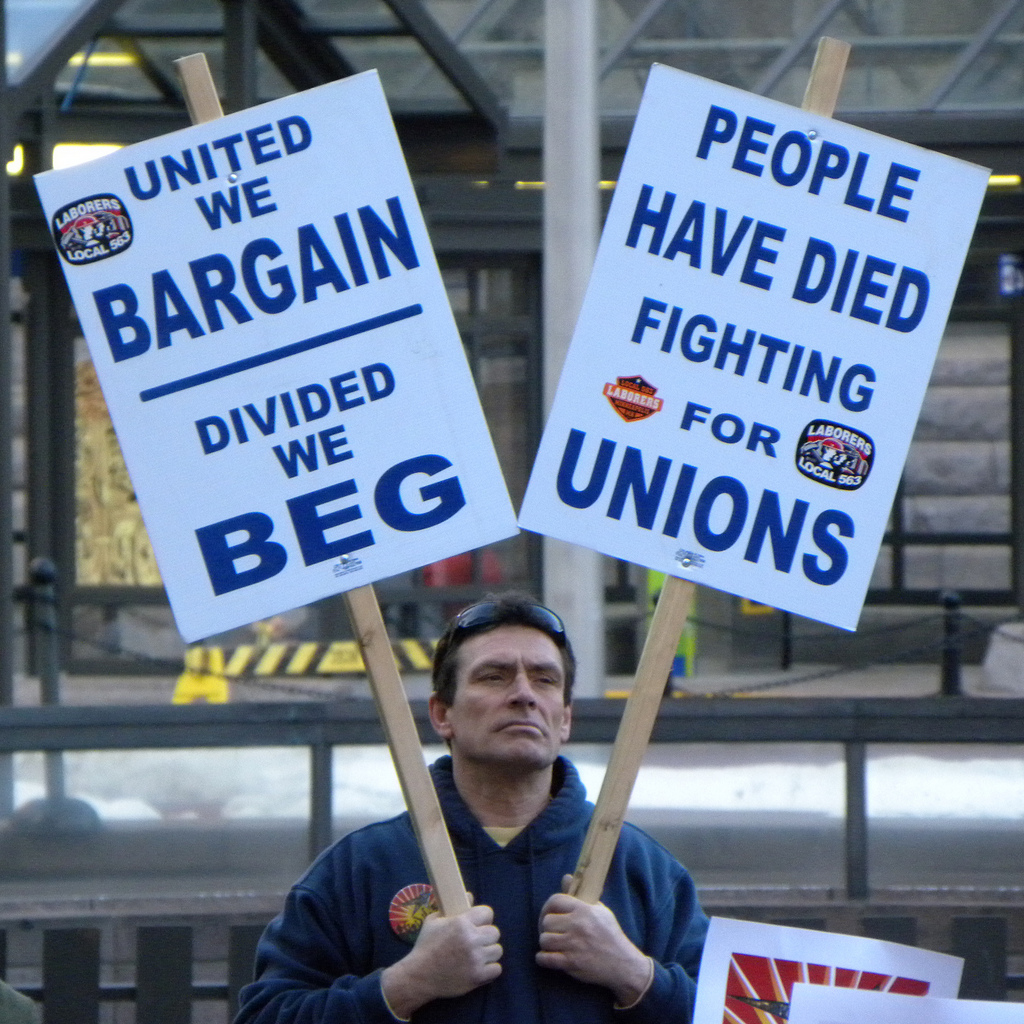Right-to-work laws may soon make American union membership — which, at 10.7 percent, is already at a record low — fall to even more calamitous depths.
Six states in the last five years have passed right-to-work legislation — laws that prohibit unions from requiring their members to pay dues, according to a report by Bloomberg. Although a right-to-work bill failed in New Hampshire on Thursday, it remains one of only two states to be controlled by both a Republican governor and a Republican legislature that doesn’t have right-to-work legislation on the books; the other is Ohio. More ominously for unions, a case is pending before the Supreme Court, Friedrichs v. California Teachers Association, that could deem mandatory union fees a violation of government employees’ constitutional rights. If that happens, roughly half of America’s 14.6 million union members would be impacted.
While it is difficult to anticipate how the widespread implementation of right-to-work policies would impact America’s unions, it is telling that a 2015 study by the Economic Policy Institute discovered that right-to-work states have less than half of the unionization of other states — and their workers have lower wages.
As Raymond Hogler, Professor of Management at Colorado State University, explained in an article for Salon last December, Donald Trump’s election in 2016 will almost certainly bring about a significant setback for labor unions. In addition to appointing National Labor Relations Board members who will be pro-business and anti-union and nominating an anti-union judge to the Supreme Court, he anticipated that Trump’s election would embolden Republicans to pursue right-to-work laws.
“Right-to-work laws are statistically correlated with lower rates of union membership, lower levels of human development, lower per capita incomes, lower levels of trust and less progressive tax schemes,” Hogler wrote. “In short, the empire of right to work leans toward further entrenching the power of corporations, not the economic emancipation of American wage earners.”

